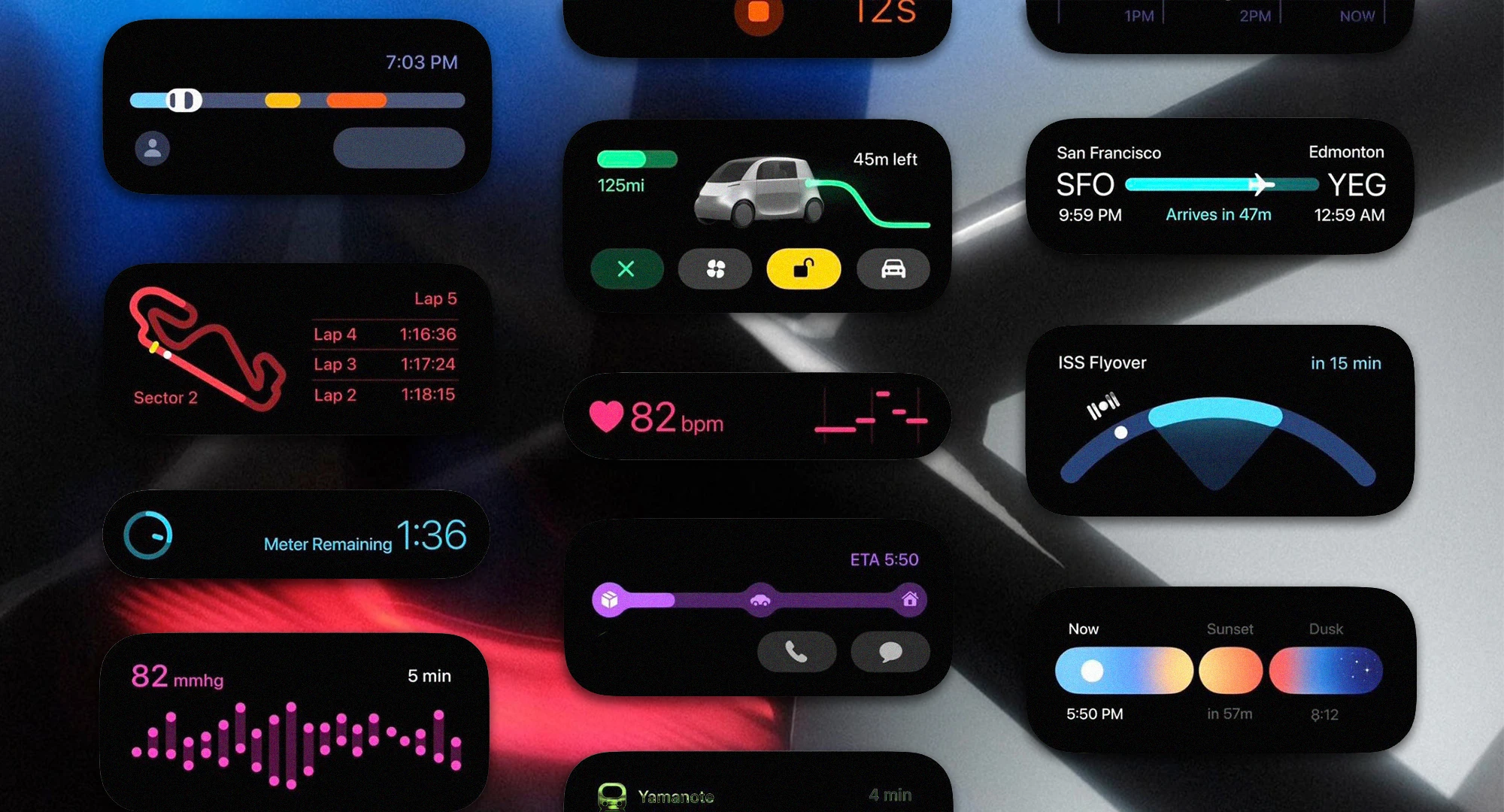
Top Best Pharmaceutical Branding Agencies to Work With - February 2026
Introduction
Brand strategy in the pharmaceutical industry has evolved rapidly over the past year, driven by increased competition, digital engagement, and changing patient expectations. In February 2026, selecting the right pharmaceutical branding agencies is more crucial than ever to stand out and build trust.
While many companies are expanding internal brand teams, partnering with pharmaceutical branding agencies remains essential. Agencies bring deep expertise, alleviate bandwidth constraints, and offer a cost-efficient path to meaningful results. Below, we uncover the top 10 pharmaceutical branding agencies worth considering today.
Top 10 Pharmaceutical Branding Agencies
1. G & Co.
G & Co. is a leading pharmaceutical branding agency and pharma brand strategy consulting firm that helps healthcare and life sciences companies build trusted, differentiated brand identities through strategic positioning, visual systems, product launch support, and digital transformation initiatives across the full spectrum of pharmaceutical brand strategy and branding for pharma companies.
G & Co. distinguishes itself through a deep understanding of the pharmaceutical landscape, combining creative execution with strategic rigor. Their end-to-end approach—from visual identity systems to go-to-market strategies—helps brands not only launch effectively but also sustain long-term relevance in a competitive, rapidly evolving industry.
G & Co. is a minority business enterprise (MBE), as certified by the National Minority Supplier Development Council (NMSDC). If diversity inclusion is a part of your supplier process, contact us—we may be a great fit for your enterprise.
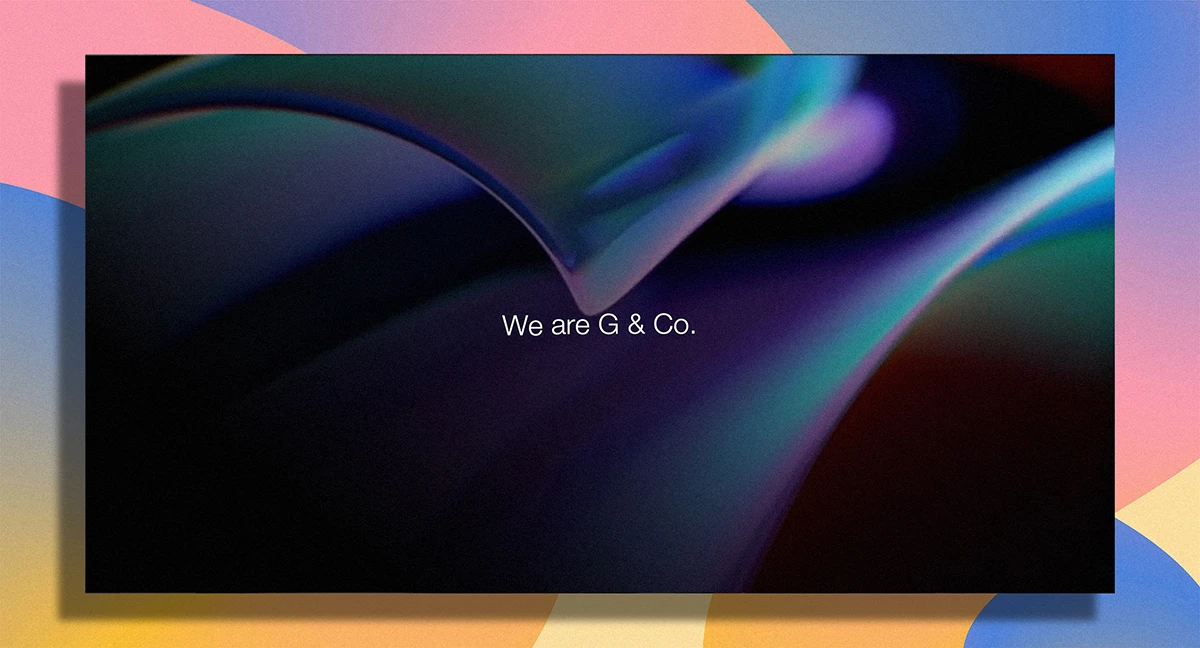
2. JPP Life Science Marketing
A boutique pharmaceutical branding agency based in the Netherlands that provides pharma brand strategy agency services, scientific messaging, and digital content for European biotech and pharmaceutical firms focused on growth and commercial readiness.
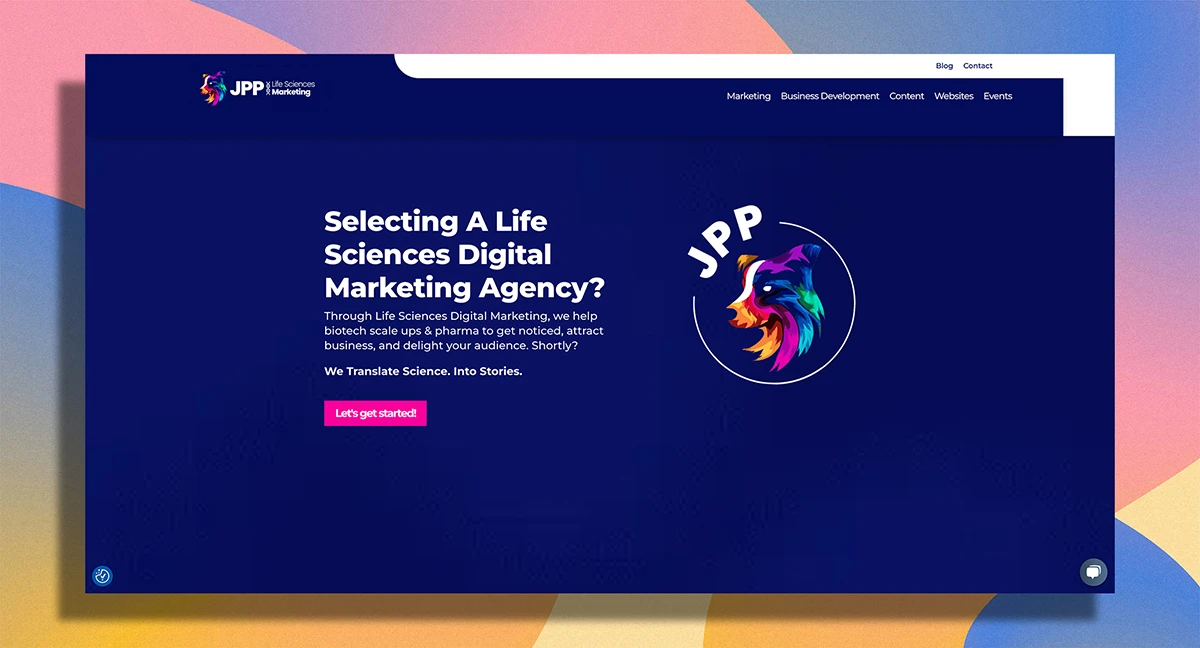
3. KDM Communications
A UK-based pharmaceutical brand consulting agency staffed by scientists who deliver clear, compliant, and persuasive pharmaceutical branding and pharmaceutical product branding strategies through content creation, integrated campaigns, and multilingual execution for B2B life science companies.
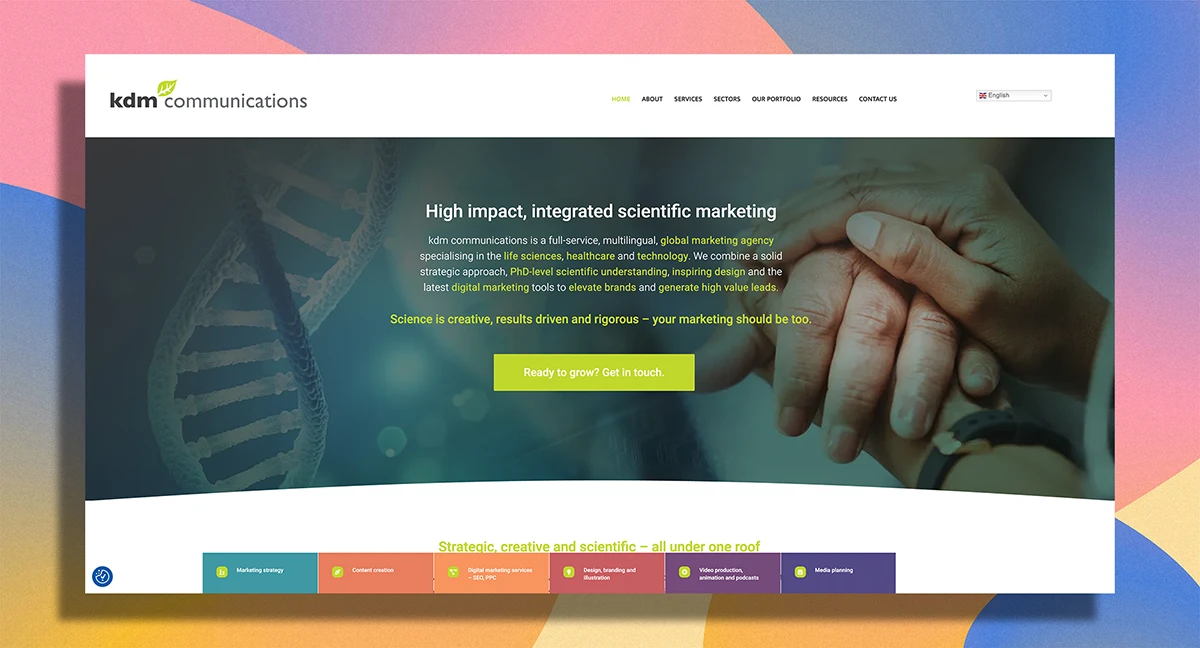
4. Orientation Marketing
A pharma branding agency specializing in strategic brand communications, digital marketing, and media planning for pharmaceutical and medical device clients, with a focus on pharma brand strategy consulting and demand generation in global niche markets.
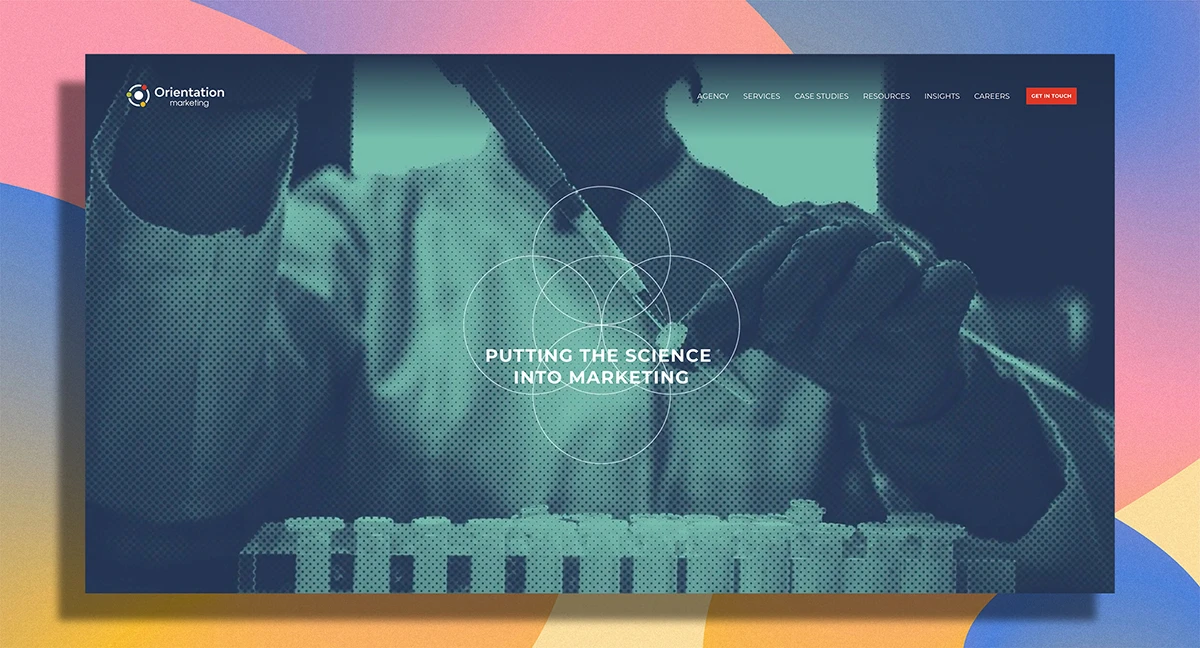
5. Samba Scientific
A full-service pharmaceutical branding agency serving diagnostics and life science brands with inbound marketing, pharma brand strategy agency services, and technical content tailored to highly regulated audiences seeking measurable impact and brand clarity.
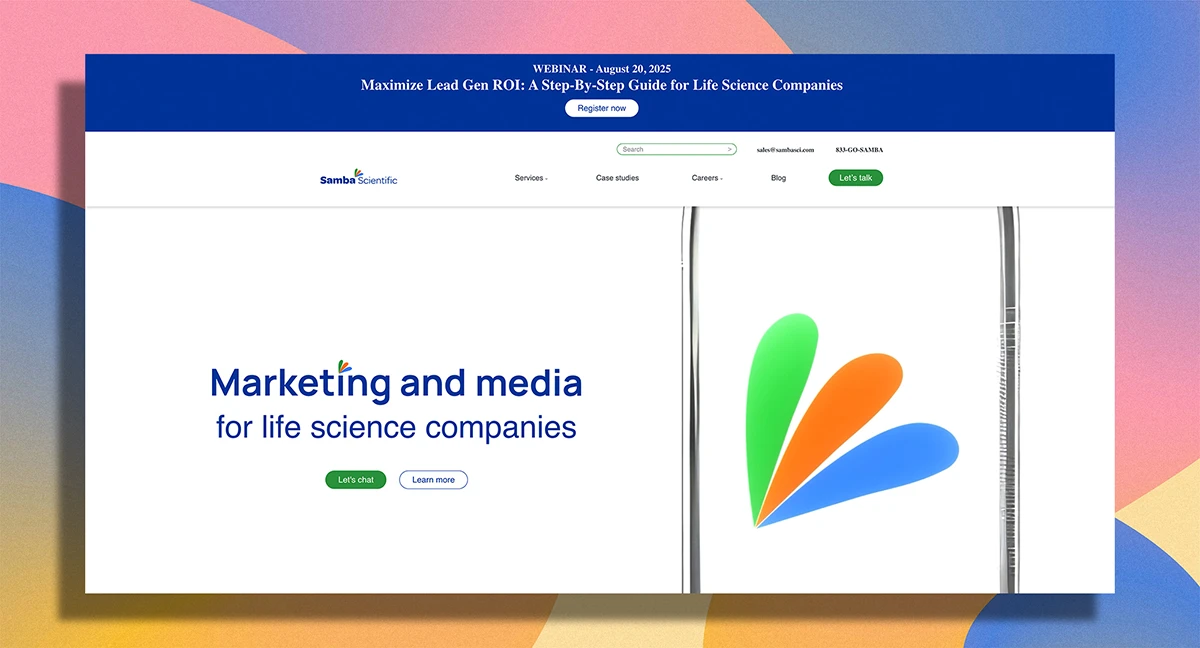
6. Perigord Life Science Solutions
A compliance-driven pharmaceutical branding agency offering packaging, naming, and labeling support alongside pharmaceutical brand strategy and pharmaceutical product branding strategies, helping pharma clients scale branding efforts while maintaining regulatory standards.
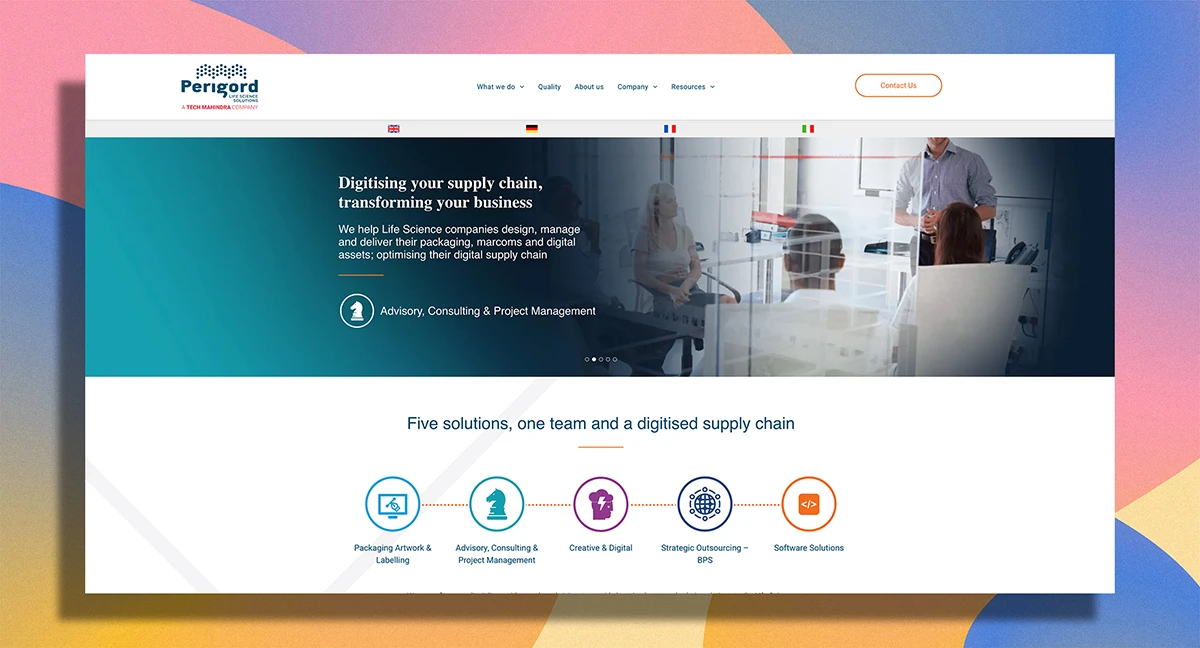
7. Kadiko
A creative and analytical pharmaceutical brand strategy agency helping biotech, medtech, and pharmaceutical brands with high-impact design systems, data storytelling, and brand identity across both digital and offline brand ecosystems.
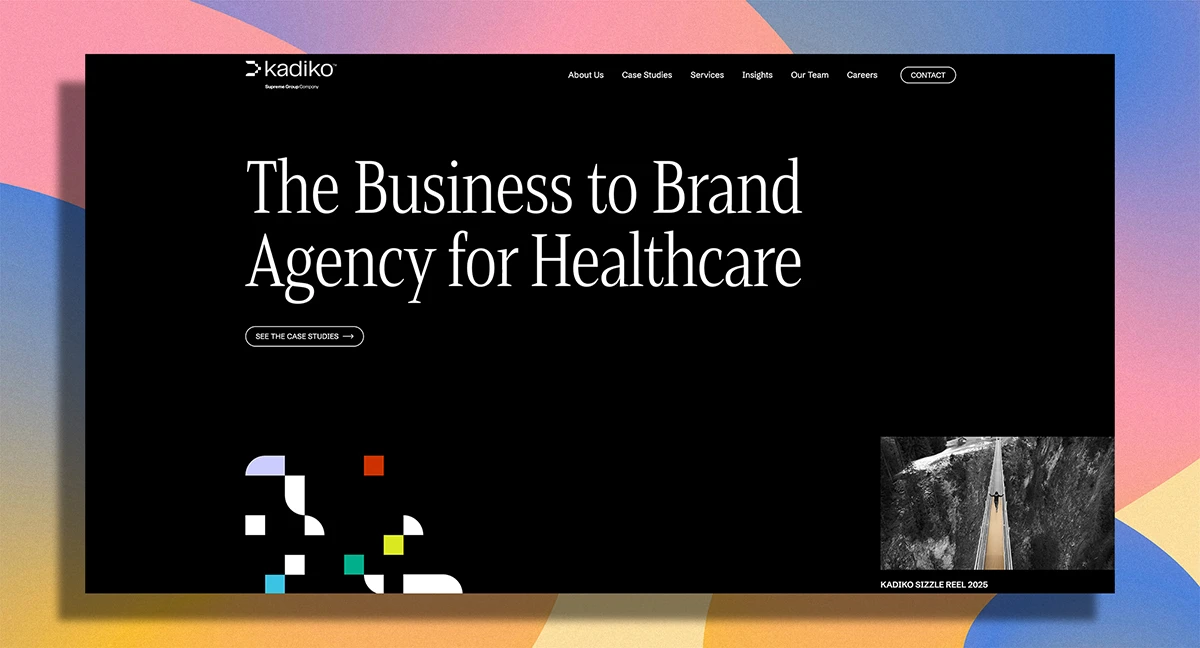
8. Health+Commerce
A U.S.-based pharma brand consulting agency supporting early-stage and mid-market biopharma brands with product launch communications, investor messaging, and public relations aligned with pharmaceutical branding and pharmaceutical brand strategy best practices.
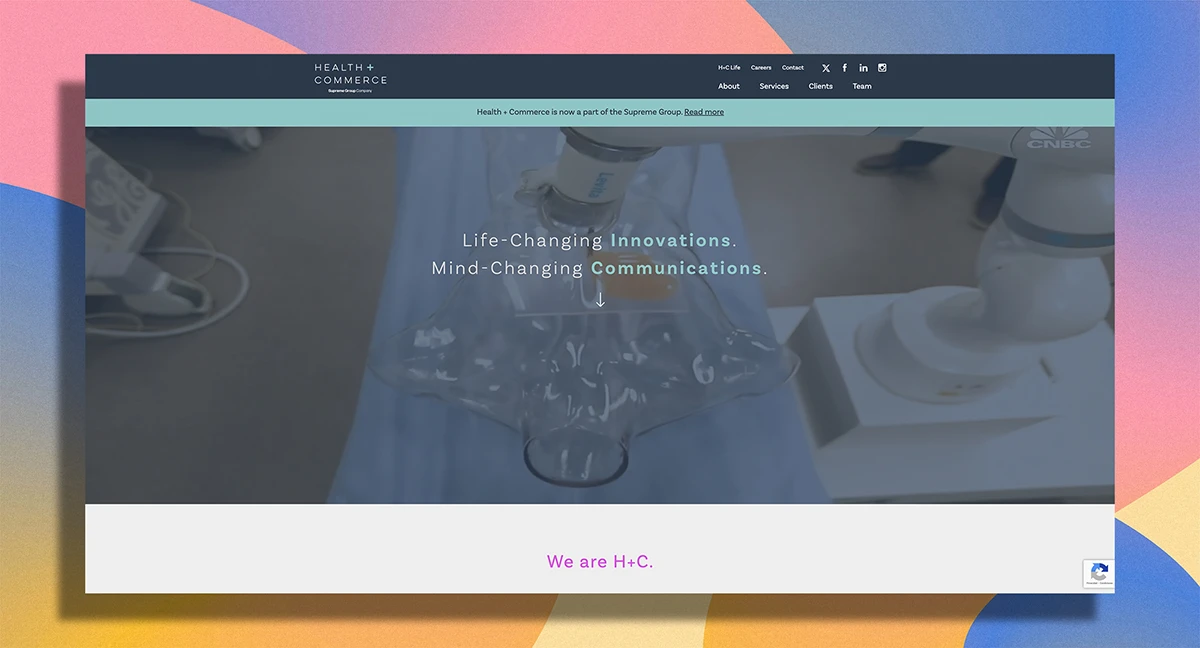
9. ClarityQuest
A U.S.-headquartered pharmaceutical branding agency delivering integrated pharma brand strategy consulting, digital marketing, and brand development for health tech and life science clients seeking category growth and clear market positioning.
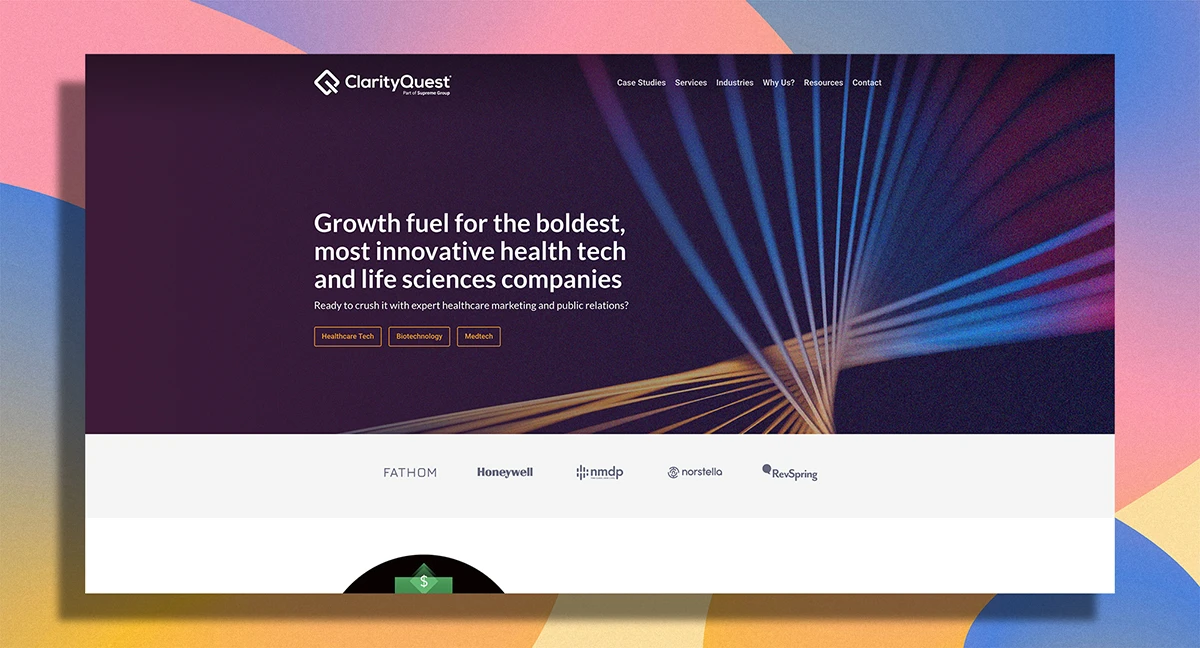
10. Random42
A London-based pharmaceutical branding agency specializing in immersive content such as 3D animation and AR/VR to support pharmaceutical product branding strategies, medical storytelling, and visual brand differentiation in competitive markets.
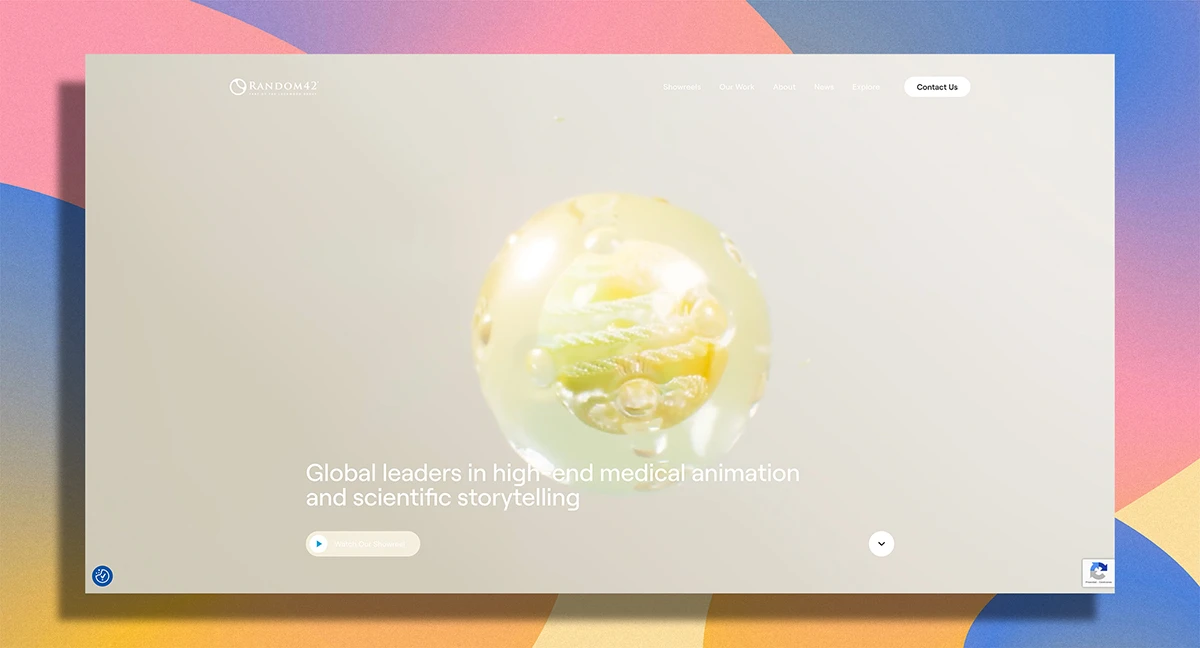
What Is a Branding Strategy?
A branding strategy is a structured approach to defining how a company presents its identity, communicates its value, and differentiates itself in the marketplace. It encompasses core elements such as brand positioning, messaging, visual identity, tone of voice, and brand architecture—all aligned to support business objectives. A successful branding strategy ensures consistency across all touchpoints, reinforces recognition, builds trust, and creates emotional resonance with target audiences. In regulated industries like healthcare and pharmaceuticals, branding strategy must also account for compliance, scientific accuracy, and multi-stakeholder engagement across prescribers, patients, regulators, and payers.
How Does Branding Strategy Work?
Branding strategy works by aligning a company’s mission, offerings, and market position with a cohesive narrative and visual framework that guides how the brand is experienced internally and externally. The process typically begins with market research and stakeholder insights to define positioning and audience segments, followed by the development of brand pillars, messaging frameworks, and design systems. Execution spans touchpoints such as marketing campaigns, digital platforms, product packaging, and internal communications. Effective branding strategy is iterative and data-informed, evolving with market dynamics and audience expectations while reinforcing long-term brand equity and business outcomes.
What Is a Pharmaceutical Branding Agency?
A pharmaceutical branding agency is a specialized firm that develops brand strategies tailored to the scientific, regulatory, and commercial complexities of the pharmaceutical industry. These agencies provide services that include positioning therapies, designing visual identity systems, creating compliant messaging platforms, and building product or portfolio-level brand architectures. Their expertise lies in translating scientific data into compelling, accurate narratives that resonate with prescribers, patients, and stakeholders across the healthcare ecosystem. In addition to creativity and strategic acumen, pharmaceutical branding agencies possess a deep understanding of industry regulations, clinical development stages, market access pressures, and therapeutic landscapes—ensuring that every brand strategy aligns with both commercial goals and regulatory requirements.
A pharmaceutical branding agency brings a specialized set of capabilities designed to help life sciences companies navigate the strategic, scientific, and regulatory demands of building and sustaining impactful brands. From early-stage molecule positioning to post-launch lifecycle planning, these agencies provide the strategic guidance and executional support necessary to create differentiated, credible, and market-ready pharmaceutical brands. In an industry where trust, accuracy, and clarity are non-negotiable, the role of a pharmaceutical branding agency is not only to craft compelling brand narratives, but to ensure those narratives align with scientific integrity, compliance standards, and stakeholder expectations. The following capabilities illustrate how a pharmaceutical branding agency supports pharmaceutical strategy across every phase of a product’s commercial journey.
What Services Do Pharmaceutical Branding Agencies Provide?
Brand Positioning and Messaging
Pharmaceutical branding agencies help companies define a brand’s strategic foundation by identifying a clear, compelling, and differentiated position within its therapeutic category. This involves rigorous analysis of competitor landscapes, stakeholder needs, scientific attributes, and market dynamics to develop value propositions tailored for prescribers, patients, and payers. Agencies then craft messaging platforms that communicate these core ideas consistently across all touchpoints, ensuring the brand is both clinically credible and emotionally resonant.
Visual Identity and Design Systems
A strong visual identity is critical in helping a pharmaceutical brand gain recognition and communicate trust. Branding agencies develop comprehensive design systems that include logos, color palettes, typography, iconography, and packaging standards—each built with clarity, compliance, and usability in mind. For pharmaceutical clients, these systems are often developed in alignment with regulatory constraints, multilingual requirements, and the functional needs of sales teams, HCPs, and patients.
Naming and Regulatory Linguistic Screening
Pharmaceutical branding agencies manage the complex process of product and company naming by combining creative ideation with linguistic, cultural, and regulatory screening. These services ensure that names are not only distinctive and aligned with the brand strategy, but also viable from a trademark and global regulatory standpoint. Agencies often guide clients through the submission process with the FDA, EMA, and other authorities, minimizing the risk of rejection and delays.
Market Research and Stakeholder Insights
Effective pharmaceutical branding begins with a deep understanding of the market, audience behaviors, unmet needs, and perception gaps. Agencies conduct both qualitative and quantitative research—through advisory boards, interviews, surveys, and social listening—to uncover insights that inform positioning, messaging, and creative development. This data-driven foundation ensures that brand strategy aligns with how prescribers, patients, and other stakeholders make decisions.
Brand Architecture and Portfolio Strategy
Pharmaceutical branding agencies support clients in structuring product families, pipeline assets, and corporate entities under a unified and scalable brand architecture. This includes decisions on how brands are named, how they relate to one another, and how each fits into a broader portfolio. Agencies guide pharmaceutical companies through architecture audits, naming conventions, and hierarchy models to ensure brand clarity and market flexibility.
Product Launch Strategy and Planning
Pharmaceutical branding agencies play a central role in launch readiness by developing integrated go-to-market strategies that span scientific narrative, brand campaign planning, and tactical execution. These services align cross-functional teams—including medical affairs, commercial, regulatory, and market access—around a cohesive brand platform. From pre-launch positioning to post-launch brand pull-through, agencies ensure a consistent, impactful brand experience at every stage.
Digital Branding and Omnichannel Integration
As digital engagement becomes essential in healthcare, pharmaceutical branding agencies develop digital-first brand experiences that extend across HCP portals, patient platforms, CRM, and paid media. This includes responsive design, content strategy, and omnichannel orchestration aligned with the brand’s core message and regulatory standards. Agencies help ensure that pharmaceutical branding performs consistently across digital environments and drives measurable engagement across all channels.
Sales Enablement and Internal Brand Training
Brand success depends not just on external perception, but on internal alignment. Pharmaceutical branding agencies equip commercial and medical teams with branded tools, training materials, and messaging guides to ensure brand consistency in field execution. These services often include brand books, MSL toolkits, eLearning modules, and sales presentations—all designed to translate strategy into confident, compliant communication.
Lifecycle Brand Management
Beyond launch, pharmaceutical branding agencies help clients evolve their brands over time in response to new competitors, market shifts, indication expansions, and data releases. This includes periodic brand audits, message refreshes, campaign optimization, and stakeholder re-engagement strategies. By managing the brand lifecycle, agencies ensure ongoing relevance, differentiation, and value across each product’s commercial journey.
Let’s kickstart the conversation and design stuff people will love.

How Long Does a Branding Strategy Engagement Take to Complete?

Timelines for pharmaceutical branding engagements are shaped by the complexity of the product, the regulatory environment, and the stage of development or commercialization. Unlike consumer branding, pharmaceutical branding must account for scientific validation, compliance reviews, and stakeholder alignment, which all contribute to a longer and more structured process. Whether supporting a pre-launch asset, rebranding an existing therapy, or building a corporate brand, a pharmaceutical branding agency typically operates within defined phases that can span anywhere from several weeks to several months. This section outlines what those phases entail and how long each typically takes, helping stakeholders plan effectively and set realistic expectations.
Scope and Complexity of the Product or Portfolio
The breadth of the branding effort directly impacts the timeline. A single product brand requires fewer steps than a complex portfolio or a company-wide brand architecture project. More complex engagements demand additional research, stakeholder alignment, and creative iteration, extending the timeline accordingly.
Stage of Drug Development or Commercial Lifecycle
Branding work initiated early in clinical development involves multiple phases of refinement aligned with clinical data milestones. Conversely, rebranding or lifecycle management efforts for established products generally have shorter timelines but may require more rigorous competitive and market repositioning work.
Level of Regulatory Review and Compliance Requirements
Pharmaceutical branding must adhere to strict regulatory guidelines, which necessitates review cycles that can add weeks to the process. Agencies incorporate these checkpoints into project plans, anticipating client and regulatory feedback loops.
Depth of Market Research and Stakeholder Engagement Needed
Extensive qualitative and quantitative research, including advisory boards and interviews with prescribers, patients, and payers, adds time but is critical for uncovering actionable insights. The complexity and scale of this research effort influence the overall duration.
Number and Diversity of Target Audiences
Brands targeting multiple audiences—such as patients, healthcare providers, and payers—require tailored messaging strategies and materials for each segment, increasing the scope and timeline of the engagement.
Internal Client Decision-Making and Review Cycles
Client-side review, approvals, and strategic alignment often take multiple rounds and can introduce variability in the timeline. Transparent communication and clear project governance help streamline this process.
Need for Global Versus Local/Regional Brand Adaptations
When brands require adaptation for different markets, including language localization and regulatory differences, additional rounds of review and customization extend project timelines.
Creative Development Complexity
Designing logos, visual identities, packaging, and comprehensive brand systems involves iterative creative development, feedback, and refinement, all of which contribute to the overall engagement length.
Integration with Digital and Omnichannel Marketing Plans
Aligning the branding strategy with digital platforms and omnichannel marketing efforts requires coordination across teams and can add complexity and time, especially when new digital assets must be developed.
Coordination Across Multiple Internal and External Teams
Collaborating with various stakeholders such as medical affairs, regulatory, legal, and external vendors requires careful scheduling and communication, often lengthening the engagement timeline.
Extent of Naming and Trademark Screening Processes
Creating and validating product and corporate names involves multiple phases of ideation, linguistic and cultural screening, trademark searches, and regulatory approvals, adding weeks or months to the branding timeline.
Timing of Clinical Data Availability and Competitive Landscape
Brand strategies often evolve in response to emerging clinical data and competitor actions, requiring flexibility in timelines to accommodate new insights and repositioning efforts.
Post-Launch Brand Lifecycle Considerations and Updates
Ongoing brand management, including message refreshes and campaign optimization, extends the engagement beyond initial launch phases and should be planned as part of a long-term partnership.
How Pharmaceutical Branding Agencies Price Their Work
Pricing for pharmaceutical branding agency services varies based on the scope, complexity, and duration of the engagement. Because pharmaceutical branding requires specialized expertise—balancing scientific rigor, regulatory compliance, and creative innovation—cost structures often reflect the depth of research, strategic development, and multi-channel execution involved. Understanding the factors that influence pricing helps clients align budgets with their brand objectives and ensures transparency throughout the partnership. The following section provides insight into common pricing models and key considerations when budgeting for pharmaceutical branding services.
Project Scope and Complexity
The breadth of work—ranging from a focused brand positioning exercise to a full-scale product launch branding campaign—significantly impacts pricing. Larger, more complex projects require greater resources, cross-functional teams, and more time, resulting in higher fees.
Level of Strategic and Creative Expertise Required
Projects demanding deep pharmaceutical knowledge, scientific literacy, and senior-level strategic input typically command premium pricing. The involvement of specialized consultants or experts with niche therapeutic experience also influences costs.
Duration and Timeline of the Engagement
Longer engagements that extend over multiple months or phases generally accrue higher fees. Accelerated timelines that require rapid delivery or increased resource allocation can also lead to premium charges.
Regulatory and Compliance Demands
Stringent regulatory environments and the need for multiple rounds of review and approval increase the workload for agencies, reflecting in pricing. Agencies must allocate additional time to ensure messaging and materials meet compliance standards.
Market Research and Stakeholder Engagement Needs
Extensive qualitative and quantitative research, including advisory boards, patient interviews, and competitive analysis, add cost due to their complexity, time requirements, and expertise needed for execution and analysis.
Deliverables and Service Types Included
Pricing varies depending on whether the engagement includes only strategic consulting, creative development, digital asset production, sales enablement tools, or a combination of services. More comprehensive service bundles command higher fees.
Geographic Reach and Localization Requirements
Projects that require brand adaptations for multiple global markets involve added costs for translation, cultural customization, and regulatory localization, increasing overall engagement pricing.
Number of Client Stakeholders and Review Cycles
Complex client organizations with multiple decision-makers typically extend review and approval timelines, increasing project management efforts and overall costs.
Use of Specialized Technology or Proprietary Tools
Incorporating advanced analytics, AI-driven insights, or proprietary software platforms to support brand strategy or creative execution can add licensing or usage fees to the engagement.
Ongoing Support and Brand Lifecycle Management
Long-term engagements that include periodic brand refreshes, campaign optimization, and lifecycle management generate recurring costs beyond initial strategy and launch phases.
Why Hire a Pharmaceutical Branding Agency

Working with a pharmaceutical branding agency offers specialized expertise and strategic insight that are essential for navigating the unique challenges of the pharmaceutical industry. These agencies combine scientific knowledge, regulatory understanding, and creative skill to build brands that resonate with healthcare professionals, patients, and other stakeholders while maintaining compliance. Partnering with a dedicated pharmaceutical branding agency ensures access to tailored solutions that drive differentiation, support commercial objectives, and accelerate market success in a highly complex and competitive environment.
Access to Specialized Industry Expertise
Pharmaceutical branding agencies bring deep knowledge of the health sector, combining scientific literacy with marketing acumen. This expertise enables brands to communicate complex medical information accurately and persuasively while understanding the nuances of therapeutic areas, competitive landscapes, and stakeholder needs.
Navigating Complex Regulatory Environments
The pharmaceutical industry operates within stringent regulatory frameworks that govern claims, communications, and promotional materials. Agencies experienced in these regulations ensure that branding efforts comply with FDA, EMA, and other global standards, minimizing legal risks and facilitating smoother approval processes.
Creating Scientifically Credible and Compliant Messaging
Developing messaging that is both compelling and scientifically accurate is critical in pharmaceuticals. Agencies specialize in translating clinical data and research into clear, compliant narratives that resonate with healthcare providers, payers, and patients, enhancing trust and credibility.
Accelerating Time-to-Market with Efficient Processes
Pharmaceutical branding agencies leverage established methodologies, cross-functional expertise, and project management rigor to streamline branding timelines. This efficiency helps pharmaceutical companies meet launch deadlines and capitalize on market opportunities more effectively.
Leveraging Advanced Market Research and Stakeholder Insights
Agencies conduct rigorous qualitative and quantitative research, engaging with prescribers, patients, payers, and other key stakeholders. These insights inform strategic decisions, ensuring that branding resonates with target audiences and addresses unmet needs.
Building Differentiated and Trustworthy Brand Identities
In a crowded and highly regulated marketplace, differentiation is vital. Pharmaceutical branding agencies craft distinct visual and verbal identities that stand out while maintaining trustworthiness, supporting long-term brand equity and commercial success.
Integrating Multi-Channel and Digital Marketing Strategies
Modern pharmaceutical branding requires seamless integration across traditional and digital channels. Agencies design omnichannel strategies that engage healthcare professionals and patients through the right mix of digital platforms, face-to-face interactions, and educational initiatives.
Managing Resource Constraints and Bandwidth Limitations
Many pharmaceutical companies face internal capacity constraints and competing priorities. Partnering with a branding agency provides access to specialized talent and resources without the overhead of building extensive in-house teams.
Enhancing Internal Alignment and Stakeholder Engagement
Effective brand building requires collaboration across commercial, medical, regulatory, and legal teams. Agencies facilitate alignment by creating clear brand frameworks, training materials, and communication tools that support consistent messaging internally and externally.
Supporting Lifecycle Brand Management and Adaptation
Pharmaceutical branding agencies provide ongoing support to adapt brands over time in response to new clinical data, competitive pressures, and evolving market conditions, ensuring brands remain relevant and continue to deliver value throughout their lifecycle.
How to Choose The Most Reliable Pharmaceutical Branding Agency
Selecting the right pharmaceutical branding agency is a critical decision that can significantly impact a brand’s success in a complex and highly regulated market. The ideal agency combines deep industry expertise with strategic insight, creative excellence, and a proven track record of navigating regulatory requirements. Choosing a partner that understands the unique challenges of pharmaceutical branding ensures alignment with business goals, efficient execution, and measurable results. This section explores key considerations and criteria to help pharmaceutical companies identify the best agency to support their branding needs.
Proven Experience in Pharmaceutical Brand Strategy
An agency’s demonstrated success in developing and executing pharmaceutical brand strategies is essential. Proven experience indicates an ability to navigate industry complexities and deliver strategies that align with commercial goals and stakeholder expectations.
Deep Understanding of Regulatory and Compliance Requirements
The right agency must possess thorough knowledge of global pharmaceutical regulations to ensure all branding materials and messaging comply with FDA, EMA, and other regulatory bodies’ guidelines, minimizing legal risks and approval delays.
Ability to Translate Complex Science into Clear Messaging
Pharmaceutical branding requires the ability to distill intricate scientific data into accessible and compelling narratives that resonate with diverse audiences, including healthcare providers, patients, and payers.
Strength of Creative and Visual Design Capabilities
Creative excellence is key to differentiating brands in a competitive market. Agencies should demonstrate skill in developing visual identities and design systems that are both engaging and compliant with industry standards.
Expertise in Multi-Channel and Digital Brand Integration
Successful pharmaceutical branding extends across multiple channels and platforms. The agency should have experience creating integrated strategies that unify traditional marketing with digital, social, and omnichannel approaches.
Track Record with Similar Therapeutic Areas or Markets
Working with clients in the same or related therapeutic areas provides valuable context and insights. Agencies familiar with a specific market can anticipate challenges and tailor strategies to unique audience needs.
Robust Research and Stakeholder Insight Capabilities
Strong qualitative and quantitative research skills are critical for uncovering unmet needs, understanding stakeholder perspectives, and validating brand strategies before launch.
Flexibility and Collaboration in Working with Internal Teams
Effective agencies act as partners, adapting to client workflows and fostering open communication to ensure alignment across commercial, medical, regulatory, and legal teams.
Transparent Project Management and Communication Processes
Clear timelines, defined milestones, and regular updates are important to keep projects on track and maintain client confidence throughout the branding engagement.
Commitment to Long-Term Brand Lifecycle Support
Pharmaceutical branding is an ongoing process. Agencies that offer continued brand management and adaptation services help ensure brands remain relevant and competitive throughout their commercial lifecycle.
15 Questions To Ask Pharmaceutical Branding Agencies Before You Hire One

Before engaging with a pharmaceutical branding agency, companies often have important questions to ensure the partnership will meet their specific needs and deliver measurable results. Understanding how the agency approaches strategy, compliance, creativity, and collaboration helps set clear expectations and build confidence. This section highlights common questions prospective clients ask to evaluate an agency’s expertise, capabilities, and fit, providing a framework for making an informed hiring decision.
Here are 15 questions a prospective client might ask before hiring a pharmaceutical branding agency:
- What experience do you have in our specific therapeutic area or market segment?
- How do you ensure compliance with FDA, EMA, and other regulatory requirements during branding?
- Can you provide examples of successful pharmaceutical brand strategies you have developed?
- How do you approach translating complex scientific data into clear, compelling messaging?
- What is your process for conducting market research and gathering stakeholder insights?
- How do you integrate digital and traditional marketing channels in your branding strategies?
- What is your typical project timeline from strategy development to launch?
- How do you manage collaboration and communication with internal client teams?
- What role does creative design play in your pharmaceutical branding process?
- How do you handle naming and trademark screening for pharmaceutical products?
- Can you support global brand adaptations and localization requirements?
- How do you measure the success and impact of your branding efforts?
- What is your approach to managing brand lifecycle and ongoing brand evolution?
- How do you accommodate changes in clinical data or regulatory guidelines during a project?
- What types of deliverables and ongoing support do you provide after the initial engagement?
What Experience Do You Have in Our Specific Therapeutic Area or Market Segment?
Understanding an agency’s experience in your specific therapeutic area or market segment is crucial because pharmaceutical branding requires deep knowledge of disease states, patient journeys, competitive dynamics, and stakeholder needs unique to each category. Agencies familiar with your space are better positioned to develop targeted strategies that resonate with healthcare professionals, patients, and payers while anticipating market challenges and regulatory nuances specific to your therapy.
How Do You Ensure Compliance With FDA, EMA, and Other Regulatory Requirements During Branding?
Regulatory compliance is a non-negotiable aspect of pharmaceutical branding. Asking about an agency’s approach to navigating FDA, EMA, and other regional requirements helps determine their ability to create messaging and creative assets that adhere to strict guidelines. This reduces the risk of costly revisions or delays and ensures that all brand communications maintain scientific accuracy and legal integrity.
Can You Provide Examples of Successful Pharmaceutical Brand Strategies You Have Developed?
Requesting concrete examples of successful pharmaceutical brand strategies demonstrates the agency’s proven capability to deliver results. It provides insight into their strategic thinking, creative execution, and ability to address complex challenges. Reviewing case studies or client references helps you assess whether their approach aligns with your goals and expectations.
How Do You Approach Translating Complex Scientific Data Into Clear, Compelling Messaging?
Pharmaceutical brands must communicate intricate scientific information in ways that are both accurate and accessible to diverse audiences. This question evaluates the agency’s expertise in distilling clinical data into messaging that connects emotionally and intellectually with healthcare providers, patients, and other stakeholders, balancing rigor with engagement.
What Is Your Process for Conducting Market Research and Gathering Stakeholder Insights?
Robust market research and stakeholder engagement form the foundation of effective brand strategy. Understanding how an agency conducts qualitative and quantitative research, including advisory boards and interviews, reveals their commitment to evidence-based decision-making and ensures that your brand strategy is informed by real-world insights and unmet needs.
How Do You Integrate Digital and Traditional Marketing Channels in Your Branding Strategies?
Pharmaceutical branding today demands a seamless integration of digital and traditional channels to reach audiences where they engage most. Asking this question clarifies the agency’s ability to create omnichannel strategies that deliver consistent messaging and maximize impact across platforms such as digital, print, events, and direct interactions.
What Is Your Typical Project Timeline From Strategy Development to Launch?
Knowing the typical timeline helps set realistic expectations and align internal resources with the agency’s process. It also sheds light on the agency’s project management capabilities and their experience balancing speed with quality, especially important in the time-sensitive pharmaceutical environment.
How Do You Manage Collaboration and Communication With Internal Client Teams?
Effective collaboration between the agency and your internal teams—such as commercial, medical, legal, and regulatory—is critical for brand success. Understanding the agency’s communication methods and workflows ensures that feedback cycles are efficient, alignment is maintained, and potential bottlenecks are proactively managed.
What Role Does Creative Design Play in Your Pharmaceutical Branding Process?
Creative design translates brand strategy into visual and experiential elements that differentiate and engage. This question helps determine how much emphasis the agency places on creative excellence, compliance-friendly design, and how design is integrated into broader strategic and tactical initiatives.
How Do You Handle Naming and Trademark Screening for Pharmaceutical Products?
Naming a pharmaceutical product is a complex process involving creativity, linguistic screening, trademark searches, and regulatory approvals. Asking about this process ensures the agency has the expertise to deliver names that are memorable, legally sound, and globally viable, minimizing the risk of costly rejections.
Can You Support Global Brand Adaptations and Localization Requirements?
Pharmaceutical brands often need to be adapted for different regions due to linguistic, cultural, and regulatory differences. Understanding an agency’s capability to manage localization and ensure consistent brand integrity worldwide is vital for companies with multinational reach.
How Do You Measure the Success and Impact of Your Branding Efforts?
Measuring the effectiveness of branding activities is essential for demonstrating return on investment. This question probes the agency’s use of KPIs, analytics, market feedback, and brand health tracking to continuously refine strategies and ensure the brand delivers commercial and strategic value.
What Is Your Approach to Managing Brand Lifecycle and Ongoing Brand Evolution?
Pharmaceutical brands require continual management post-launch to stay relevant amid evolving clinical data, competitive pressures, and market trends. Agencies that offer lifecycle management support can help clients optimize messaging, refresh creative assets, and plan for future indications or geographies.
How Do You Accommodate Changes in Clinical Data or Regulatory Guidelines During a Project?
The pharmaceutical environment is dynamic, with new data and shifting regulations frequently impacting brand strategy. Understanding how an agency adapts its approach and maintains agility during these changes is critical to ensuring your brand remains compliant and strategically sound throughout development and commercialization.
What Types of Deliverables and Ongoing Support Do You Provide After the Initial Engagement?
Branding is not a one-time activity but an ongoing partnership. This question clarifies the scope of deliverables—such as brand guidelines, training materials, digital assets—and the availability of continued support, updates, and optimization services that help sustain brand momentum over time.
Searching for the right Pharmaceutical Branding Agency?
Hiring a pharmaceutical branding agency offers invaluable expertise that goes beyond traditional marketing. These agencies bring a deep understanding of the scientific, regulatory, and commercial complexities unique to the pharmaceutical industry. They combine strategic insight, creative excellence, and compliance know-how to craft compelling brands that resonate with healthcare professionals, patients, and payers alike. Engaging a specialized agency accelerates time-to-market, enhances brand differentiation, and ensures messaging remains accurate and trustworthy throughout a product’s lifecycle. Ultimately, partnering with a pharmaceutical branding agency helps companies build sustainable brand equity, navigate regulatory challenges, and achieve measurable commercial success in a highly competitive landscape.
G & Co. stands out as a leading pharmaceutical branding agency by delivering tailored brand strategies that integrate scientific rigor with creative innovation. With extensive experience across therapeutic areas and a proven track record of navigating complex regulatory environments, G & Co. crafts clear, compliant, and impactful messaging designed to engage key stakeholders at every stage of the pharmaceutical lifecycle. Their collaborative approach ensures alignment with internal teams, while their multi-channel expertise drives cohesive brand experiences that accelerate market adoption. For companies seeking a trusted partner to build differentiated, credible, and results-driven pharmaceutical brands, G & Co. offers the strategic depth and executional excellence essential for success.
Submit an inquiry to G & Co. on our contact page or click on the blue "Click to Contact Us" button on the bottom right corner of your screen for your convenience. We look forward to hearing from you.






%20(1).png)


